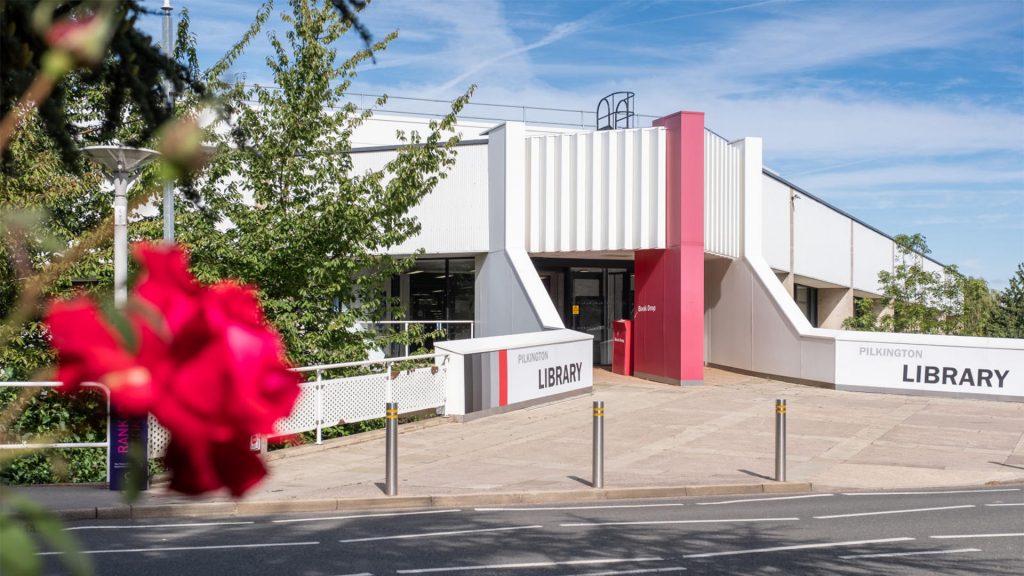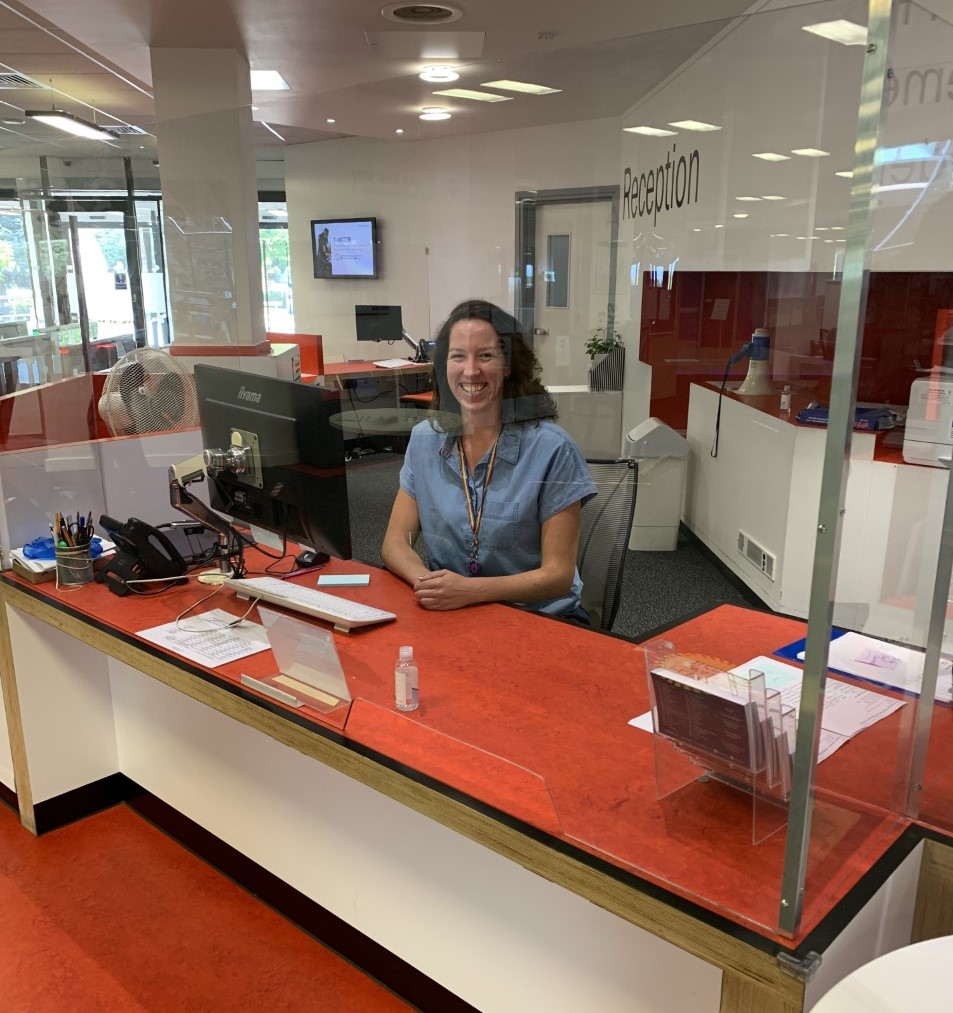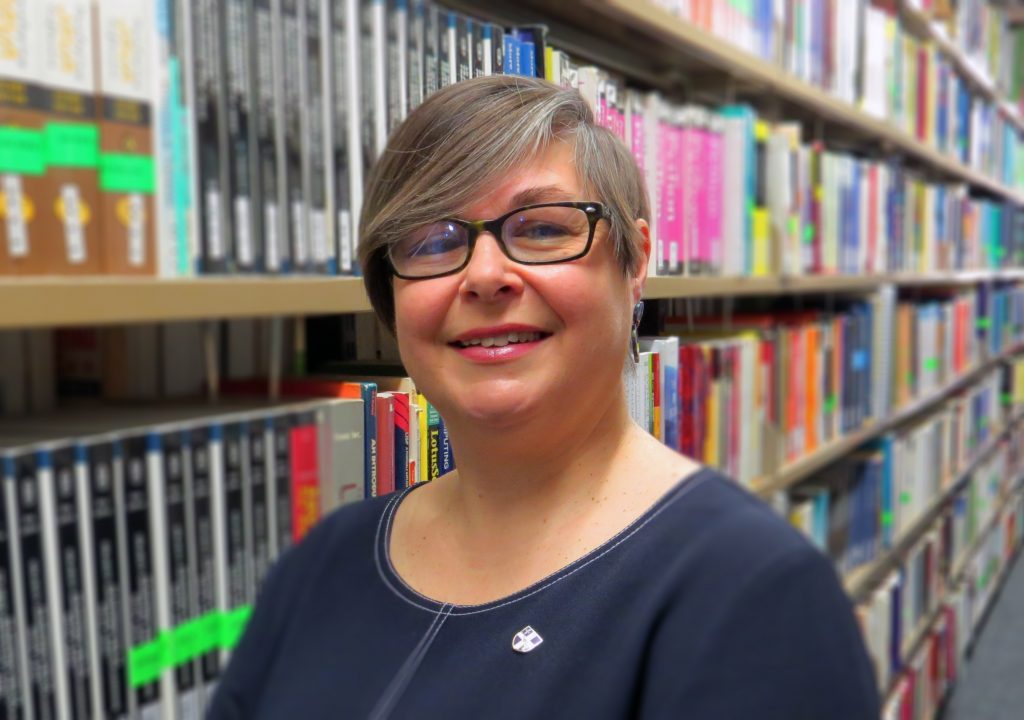How we’ve changed our service for you: An overview of the new measures in place at the University Libraries

Over the last few months, gradually the Pilkington Library has reopened to support staff and students – whether they need a space to study, books to take home or to talk in person to a member of staff.
Library Assistant Tessa Boyd along with the Director of Library Services, Emma Walton, share their experiences and the precautions taken to keep the services running smoothly and safely for both staff and users.
I joined Loughborough University relatively recently, in November last year, as a Library Assistant at Pilkington Library. Being in a customer-facing role, I never considered the possibility that I may have to adapt to working from home. Yet, this was the reality the User Services team faced back in March.

While the building was shut, the Library service as a whole never completely closed, and much of the online support and enquiries were handled by the Senior Library Support managers. Physical books were temporarily unavailable, but our extensive collection of e-books and online journals really came into their own as exam season hit for students.
It was something of a relief to be asked to come back to work in early May, as I welcomed the return to some routine and a good excuse to get out of the house. Living with my parents – who both work in the NHS – and the novelties of being home alone during the day had definitely started to wear thin, what with their long hours and the constant hanging up of scrubs on the line!
Initially, the Library was completely closed to all students and non-library staff. Only a very limited number of staff were permitted in the building, and without the constant crowds of students that traditionally accompany the exam period, the Library felt cavernously empty and somewhat eerie.
The first major task for us was returning the thousands of books that students had dropped off as they left campus when the national lockdown was triggered. We emptied our external drop boxes throughout the day with latex gloves, loading up trolleys with the avalanche of returning books, and depositing these in a corner of the Library to be ‘quarantined’ for 72 hours before returning them.
We also started up a book collection service. Students and staff emailed in the details of the hard copies of the books they needed, and we fetched these from the lower levels, leaving them in the foyer for collection so users didn’t need to enter the building fully.
As we embraced the possibility of the Library opening back up in a limited capacity for study space, additional safety and precautionary measures were put in place. Most of the Library remains taped off so we can keep an eye on things, and the reception desks are now all behind solid Perspex.
The days of hot-desking are over for the time being, and staff members have their own designated workspace and equipment. The lift is reserved for books only, and there is also now a one-way system for staircases – one for going up, and one for going down. We’re blessed with lots of space in the Library, so with the limited numbers social distancing is far easier to maintain than a shop at Tesco’s!
Some of my friends and family were surprised to hear the Library was back in action so soon, but I can honestly say I feel safer here than any other enclosed public space I’ve been to since the pandemic began.
The amount of attention and consideration to safety has been very reassuring, and the risk assessments our Facilities Manager Brant has organised have certainly not been in vain.
It’s good to know we’re providing a service staff and students really do appreciate; we’re one of the only university libraries in the country to have re-opened in any capacity, and friends of mine studying at other institutions are extremely envious that we’re providing study space and a book collection service.
For those trying to write theses in the confines of the same four walls for months on end, the value of a new, quiet, and safe space to focus is not to be understated!
The demand for book collections has increased too, and we’ve been able to provide texts impossible to access online for all types of library users, from Professors prepping for the next academic year, PhD students writing proposals, to undergraduates re-sitting exams.
It’s been personally gratifying for me to know we’ve been able to provide some continuity and support for members of the University.
The ability of the service to adapt in these challenging and rapidly evolving times has been genuinely impressive, and I have no doubt we’ll be working hard to do the same when the new academic year begins.
Director of Library Services, Emma Walton, provides further insight into the work that has gone on behind the scenes at the University’s libraries:
I really enjoy being at work. I like the energy that comes with working in a busy environment, being around colleagues and the wider University community. And even though many library services are increasingly delivered and provided digitally, the physical building and collection is, I believe, still important.

The change in circumstances saw the Library Service move completely online, and I am incredibly proud of how the team across both of our campuses adapted and developed services to ensure that we continued to support all of our users.
Inevitably, the closing of the buildings restricted some services, but we all worked really hard to keep supporting our community.
Our support and services continued, but I personally found remote working a struggle. I live on my own and despite a lot of excellent digital communication, I really missed working on campus so as soon as we were able to, a small number of staff including myself started working from the building.
The space was reconfigured following support from our colleagues in Health and Safety and our fantastic Library facilities team, which allowed us to work safely using one-way staircases, waiting areas, clear signage and Perspex screens. It gave me and other staff members an opportunity to see how the measures worked and where they needed adapting.
In order to support students who remained on campus and in the local area during the assessment period, myself and colleagues managed a study space in James France, complete with socially distanced study spaces, screens and lots of cleaning products.
Those who used the space really valued the opportunity to have somewhere different to study and this is why, in part, we were keen to open to users as soon as we were able. We have been open since July with a limited ‘stay and study’ offer in the Pilkington Library to complement the ‘click and collect’ service that the London campus Library offers too.
More and more colleagues in the Library are beginning to work in the building and are learning to work with the changes we have made. I am even starting to remember which staircase is up and which is down – progress! Having a limited service open for our users means that we can still interact with them, even if it is from behind a screen or a face covering, and this can only help as we get closer to the new academic year.
We will need to work differently, but ultimately these measures mean both users and staff can feel reassured, confident and comfortable in their surroundings.
Health and Wellbeing
Wellbeing means being in a positive physical, social and mental state. Wellbeing is important to us as happy, healthy people who achieve harmony in their work / life mix are more creative, productive and help to create a great place to work.